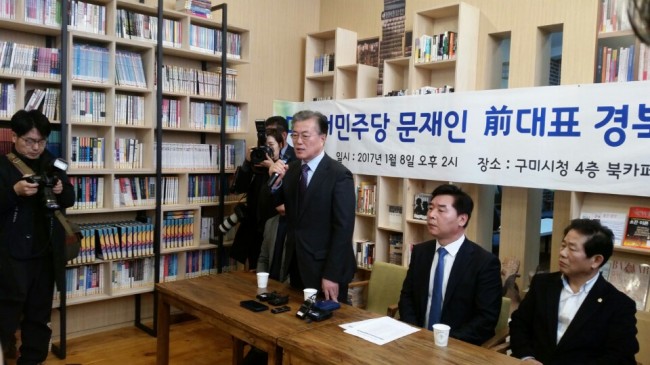The South Korean government has officially begun discussions to revise the sweeping anti-corruption law less than four months after it was implemented amid much controversy and public confusion.
Officials from several related government bodies, including the Anti-Corruption & Civil Rights Commission, held an inaugural meeting Tuesday to come up with a revised draft for the Improper Solicitation and Graft Act.
The ministries of agriculture, fisheries and small business administration will launch a fact-finding investigation separately to assess the impact of the law on local businesses, officials said.
The move comes amid mounting worries that the economy will continue to face slow growth if it fails to offset the impact of slowing global trade with a boost in domestic consumption.
More commonly referred to as the Kim Young-ran law, the highly controversial act is aimed at drawing a clear line between accepted hospitality and bribes.
It prohibits public servants, educators and journalists from offering or receiving free meals valued at over 30,000 won ($25), gifts worth over 50,000 won or monetary gifts worth over 100,000 won. Kim is the former commission chief and Supreme Court justice who initiated the campaign for its enactment.
While it was hailed by proponents as a major step forward in the country’s fight against corruption, many have expressed worries that the ban is excessive and could hamper domestic consumption.
The ruling Saenuri Party demands some adjustments in the tough regulations.
Rep. Lee Hyun-jae, the party’s chief policymaker, said after a policy consultation meeting Tuesday morning between the ruling party and the government that the party has officially called for a quick amendment of the law to resolve difficulties faced by local businesses.
“There has been a directive from acting President (Hwang Kyo-ahn) and calls from chief policymakers of the main four political parties for the government to address the problems that may have occured after the implementation of the law,” Rep. Lee said. “The government is now examining how to come up with detailed solutions.”
A leading presidential hopeful, Moon Jae-in, has also said the law should not apply for agro-fishery products.
Officials from several related government bodies, including the Anti-Corruption & Civil Rights Commission, held an inaugural meeting Tuesday to come up with a revised draft for the Improper Solicitation and Graft Act.
The ministries of agriculture, fisheries and small business administration will launch a fact-finding investigation separately to assess the impact of the law on local businesses, officials said.
The move comes amid mounting worries that the economy will continue to face slow growth if it fails to offset the impact of slowing global trade with a boost in domestic consumption.
More commonly referred to as the Kim Young-ran law, the highly controversial act is aimed at drawing a clear line between accepted hospitality and bribes.
It prohibits public servants, educators and journalists from offering or receiving free meals valued at over 30,000 won ($25), gifts worth over 50,000 won or monetary gifts worth over 100,000 won. Kim is the former commission chief and Supreme Court justice who initiated the campaign for its enactment.
While it was hailed by proponents as a major step forward in the country’s fight against corruption, many have expressed worries that the ban is excessive and could hamper domestic consumption.
The ruling Saenuri Party demands some adjustments in the tough regulations.
Rep. Lee Hyun-jae, the party’s chief policymaker, said after a policy consultation meeting Tuesday morning between the ruling party and the government that the party has officially called for a quick amendment of the law to resolve difficulties faced by local businesses.
“There has been a directive from acting President (Hwang Kyo-ahn) and calls from chief policymakers of the main four political parties for the government to address the problems that may have occured after the implementation of the law,” Rep. Lee said. “The government is now examining how to come up with detailed solutions.”
A leading presidential hopeful, Moon Jae-in, has also said the law should not apply for agro-fishery products.

During the party-government meeting, Saenuri and the government also decided to expand the supply of agro-fishery and livestock products to stabilize prices for the Lunar New Year holiday, which falls on Jan. 28.
The government will release some 36 million eggs in storage next week to ease surging egg prices in the aftermath of the bird flu outbreak. It will also raise subsidies from 1 million won ($840) to 1.5 million won on egg imports for price stabilization and expand importing countries to Southeast and Southwest Asia.
By Jo He-rim (herim@heraldcorp.com)
The government will release some 36 million eggs in storage next week to ease surging egg prices in the aftermath of the bird flu outbreak. It will also raise subsidies from 1 million won ($840) to 1.5 million won on egg imports for price stabilization and expand importing countries to Southeast and Southwest Asia.
By Jo He-rim (herim@heraldcorp.com)










![[Hello India] Hyundai Motor vows to boost 'clean mobility' in India](http://res.heraldm.com/phpwas/restmb_idxmake.php?idx=644&simg=/content/image/2024/04/25/20240425050672_0.jpg&u=)








